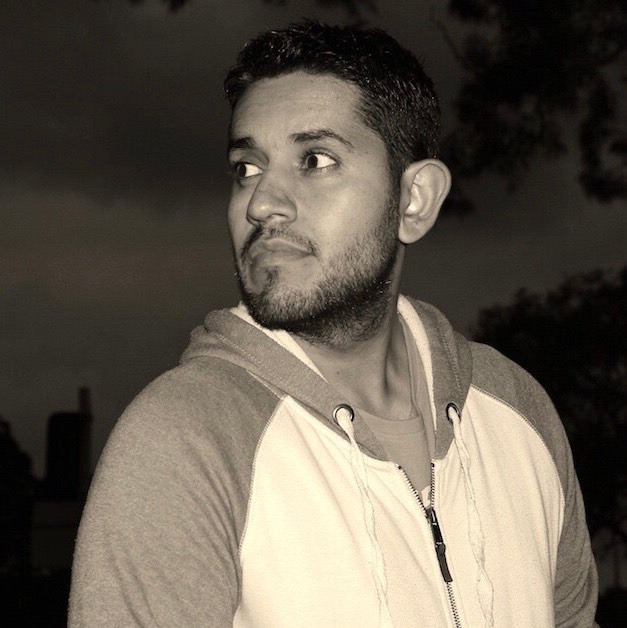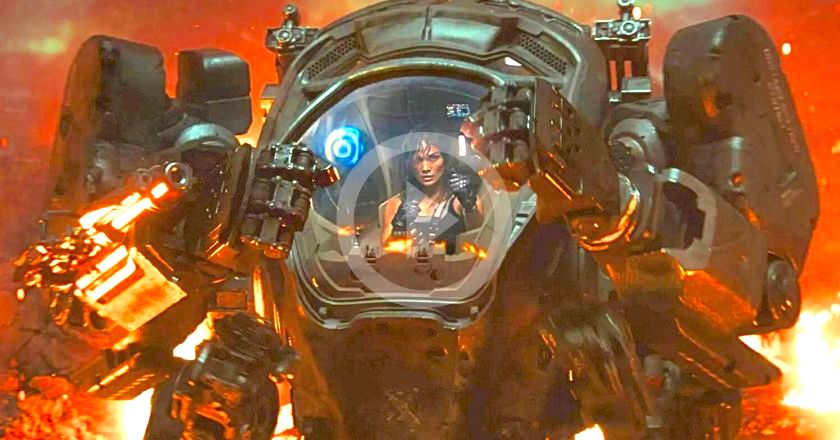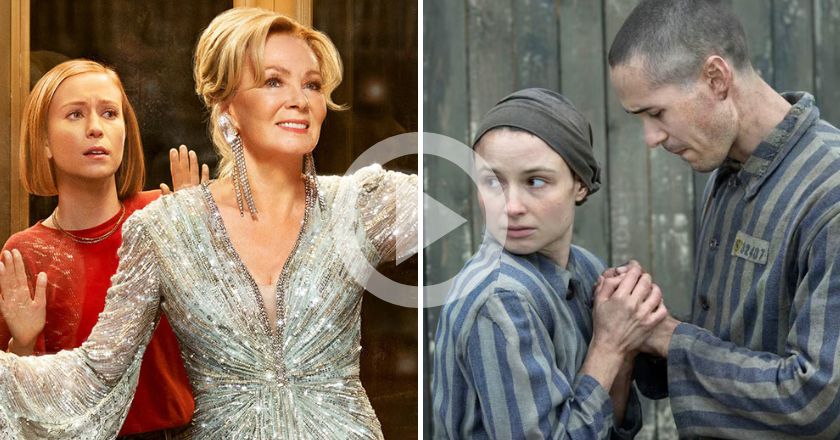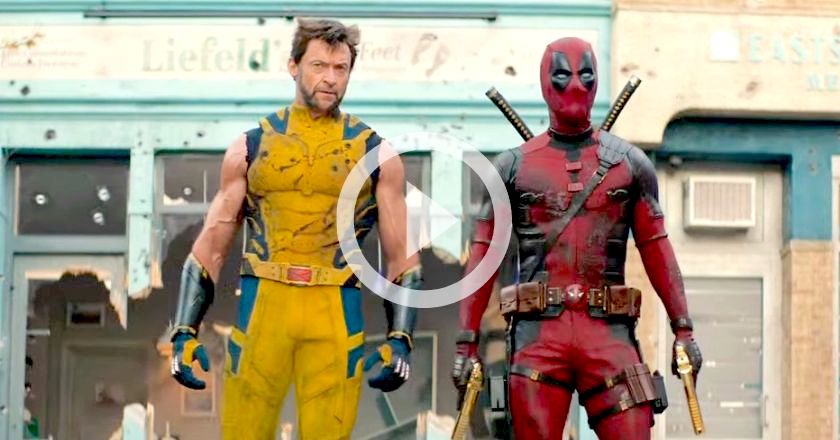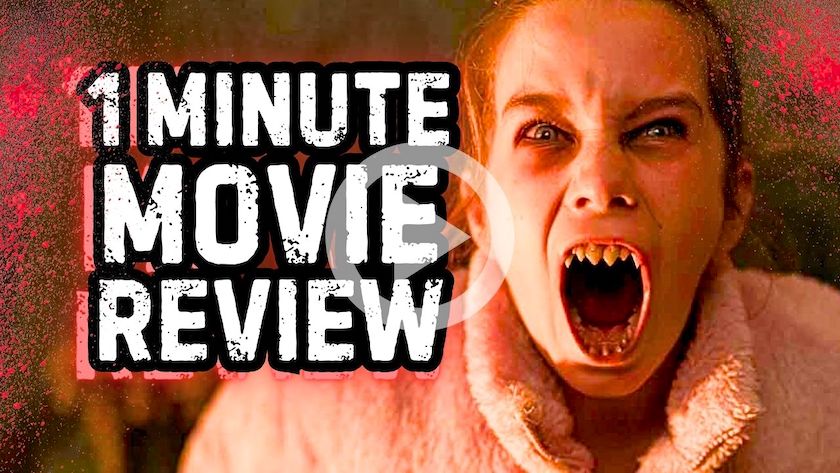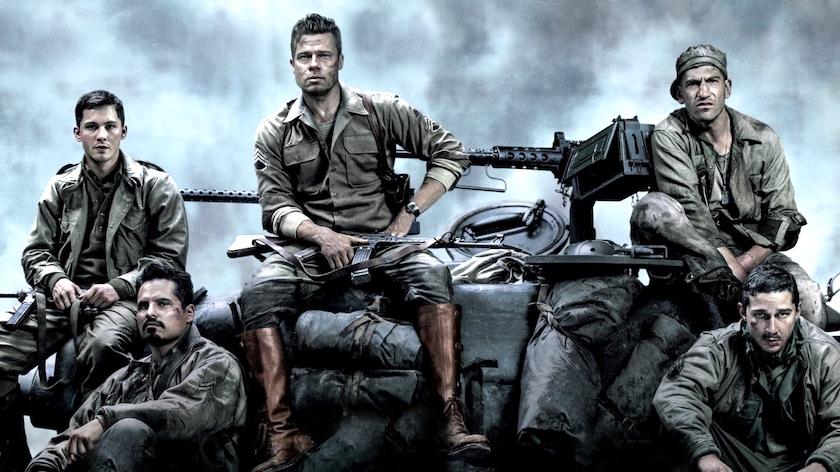
War is hell and it changes men. They’re well known facts that war films have driven home for years. Fury, a WWII drama from writer-director David Ayer (Harsh Times, End of Watch), delivers those familiar messages in familiar ways, but delivers them effectively and confidently.
We meet up with the crew of an M4A3E8 Sherman tank, “Fury”, during the last months of World War II in 1945. The team consists of Staff Sergeant Don “Wardaddy” Collier (Brad Pitt), gunner Boyd “Bible” Swan (Shia LeBeouf), loader Grady “Coon-Ass” Travis (Jon Bernthal), and driver Trini “Gordo” Garcia (Michael Peña).
Their history is tangible. They’ve been put through the ringer during this war, fighting together since the North African campaign. They’re tired and emotional, and it doesn’t help that they’ve just lost their assistant driver/bow gunner. Enter Norman Ellison (Logan Lerman), a young typist who has been thrust into the team as their replacement bow gunner.
Ayer has made a reputation crafting films based on the camaraderie between groups, especially men; he penned U-571, The Fast and the Furious, S.W.A.T. and the ill-received Sabotage. Fury sees him doing what he does best, tapping into the basic essence of friendship and loyalty, and how they work as the backbone of a team.
Ayer’s screenplay is solid and works well in establishing the workings of this group, yet it doesn’t quite hit those quieter moments that aim to stir the emotions. A key moment in which the team dynamics break down during a breakfast table scene, for example, fails to provide the depth and emotional core needed to truly understand and care for this group of men. In saying that, Fury benefits greatly from its fantastic cast.
Pitt is very good as the team’s tough father figure, even if the role conjures up memories of his turn in Tarantino’s Inglourious Basterds. LeBeouf reminds of how good he can be, Bernthal gives one of his best turns, and Peña is solid as usual (although slightly wasted here).
Ultimately, it’s Lerman who truly shines. His character serves as our eyes and ears, as he is put through hell in scene after scene of gritty learning. Lerman’s Norman is not only here to drive the narrative’s overall character focus, but to personify the loss of innocence that war brings. This is the young actor’s best work thus far – and, hopefully, a big sign of what is to come.
It’s whenever the film kicks into action mode that it truly gets it right. The battle sequences are nicely staged, the action scenes wonderfully directed. A key three-on-one tank battle is an absolute highlight. The decision to shoot using film works a treat, combining with a booming sound design to deliver some big-screen spectacle.
The brutality of war is presented in a cold, matter-of-fact manner that gels well with the film’s energetic segments, though it does desensitise the shock-factor a little too quickly.
Fury is an old-fashioned war film, through and through. It’s about men sticking together and fighting the good fight. There’s nothing here that you haven’t seen done before, but Fury is a fiery, well-directed and nicely performed war drama that should serve its target audience well.

m

